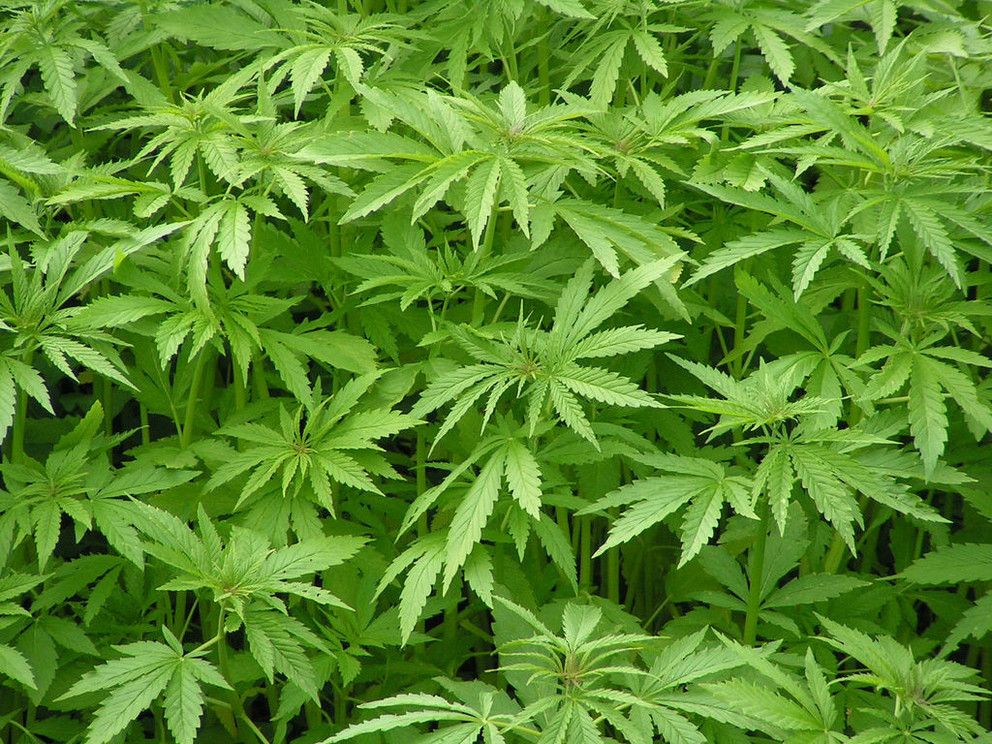ASTANA – Hemp can be used in paper production, which will lead to a significant decline in its price, said Kazakh Deputy Prime Minister Dariga Nazarbayeva at an Aug. 8 meeting, according to pm.kz. The event was dedicated to the scientific research of chemically cleaning hemp from narcotic substances for its use in industrial and medical purposes.
“Kazakhstan does not have its own paper. Everything is imported and it is reflected in the high cost. Starting Kazakh papermaking production is extremely relevant, including in favour of the print media,” said Nazarbayeva.
According to the research, cellulose from the hemp can be used for a variety of paper, from that used for banknotes to packaging and office paper. It can also be used for textiles and food products.
Nazarbayeva instructed the corresponding public authorities to implement a high-quality and transparent mechanism for granting licenses to production enterprises whose activities will be connected with hemp and its research. She noted this work must be done in cooperation and coordination with the International Commission on Narcotic Drugs in accordance with the United Nations Convention, adding developing the industrial production of hemp must be under strict government control.
First Vice Minister for Investment and Development Albert Rau talked about the hemp processing scheme, which results in the destruction of a narcotic substance in its oilcake.
A pilot project of the roadmap to cultivate non-narcotic hemp was also announced during the meeting. Within the project, hemp seeds were sown for the first time in the agricultural grounds of Almaty, Karaganda, North Kazakhstan and South Kazakhstan regions. The experimental harvest will be sent to Belgium, China, Germany and the United States to develop the technology for hemp production, according to pm.kz.
Personal cultivation and trafficking is prohibited by law. That issue was raised by Nazarbayeva in 2014 when she was deputy of the Mazhilis (lower house of Parliament), as she proposed passing the Chu Valley lands, where hemp grows naturally in abundance, to major pharmaceutical companies to further produce drugs from cannabis.
“Hemp is not only the drug that is used for criminal purposes. Hemp is also a useful crop. Medications made from hemp are used to improve the condition of patients with cancer and AIDS. For example, they are used in Israel, the Czech Republic, Canada, the Netherlands,” she said at the time, adding 25,000 different kinds of products are made from hemp throughout the world.
During the Soviet era and later, authorities tried to eradicate hemp in the Chu Valley by burning vast areas. Those attempts were unsuccessful, however, due to the plant’s deep root system and the need to use chemicals considered to be too damaging for the environment.
Hemp is one of the oldest industries in the world with a history dating 10,000 years. According to the Hemp Industries Association, hemp seeds contain high levels of vitamins A, C and E and beta-carotene and are rich in protein, carbohydrates, minerals and fibre. Spain’s University of Seville said hemp has a perfect ratio of omega-6 to omega-3 fatty acids and also provides some compounds to lower high blood pressure. Hemp can also be used in textile production as an industrial fibre and is an excellent material for sailcloth, ropes and sacks. Hemp fibre is 10 times stronger than cotton and is not only durable, but also resistant to ultraviolet light.
The Chu Valley measures more than 140,000 hectares. According to some sources, around 5,000 tonnes of the weed are collected every year, which leads to the big drug trafficking.
Researchers indicate hemp collected from one hectare can provide four times more paper than trees grown in the same area. Kazakh activists say legalisation and introduction of hemp production will lead to the increase in state profit (by collecting taxes), as well as an increase of jobs for the local population.
The biggest issue is that until recent years, the use of the hemp was not studied enough to introduce relevant production. In times of world crisis and a drop in oil prices, however, the issue of developing alternative production is increasingly important. According to the Kazakh Association of Light Industry Enterprises, hemp can be exported and the country can succeed in the field.
“Consumption of cannabis seeds in EU (European Union) countries in 2013 was 18,000 tonnes; in 2015, it was 21,000 tonnes. At the same time, 50 percent of the needs of the hemp seeds is cultivated in the EU and 50 percent is imported from China. The price of cannabis seeds has increased from 1,000 euros (US$1,099) per tonne in 2008 to 2,000 euros (US$2,198) per tonne in 2015,” noted its website.
Hemp is a free raw material that can be converted into useful products such as textiles, clothing, footwear, paper, pharmaceuticals, biofuels, oil, nutritious food and feed, said Doctor of Agricultural Sciences and Kazakh National Agrarian University professor Serik Orazbayev.
“It helps to preserve the ecological balance in agricultural landscapes and prevent desertification in arid regions, stopping the advance of sand on the desert pastures. A huge economic benefit from the sale of industrial products can be achieved as well. In addition, the budget and part of the Interior Ministry staff will be released after investigative and other law enforcement agencies are removed from protecting the thickets from drug trafficking attempts. Highly profitable production facilities and investing organisations will ensure better protection of their business facilities,” he added.
At this stage, the most important thing is research and correctly implementing its results.
The European Industrial Hemp Association has members from Austria, Belgium, France, Germany, Great Britain, Italy, the Netherlands, Romania and other countries. The companies use industrial hemp and are known as hemp primary processors or fibre separation companies.


